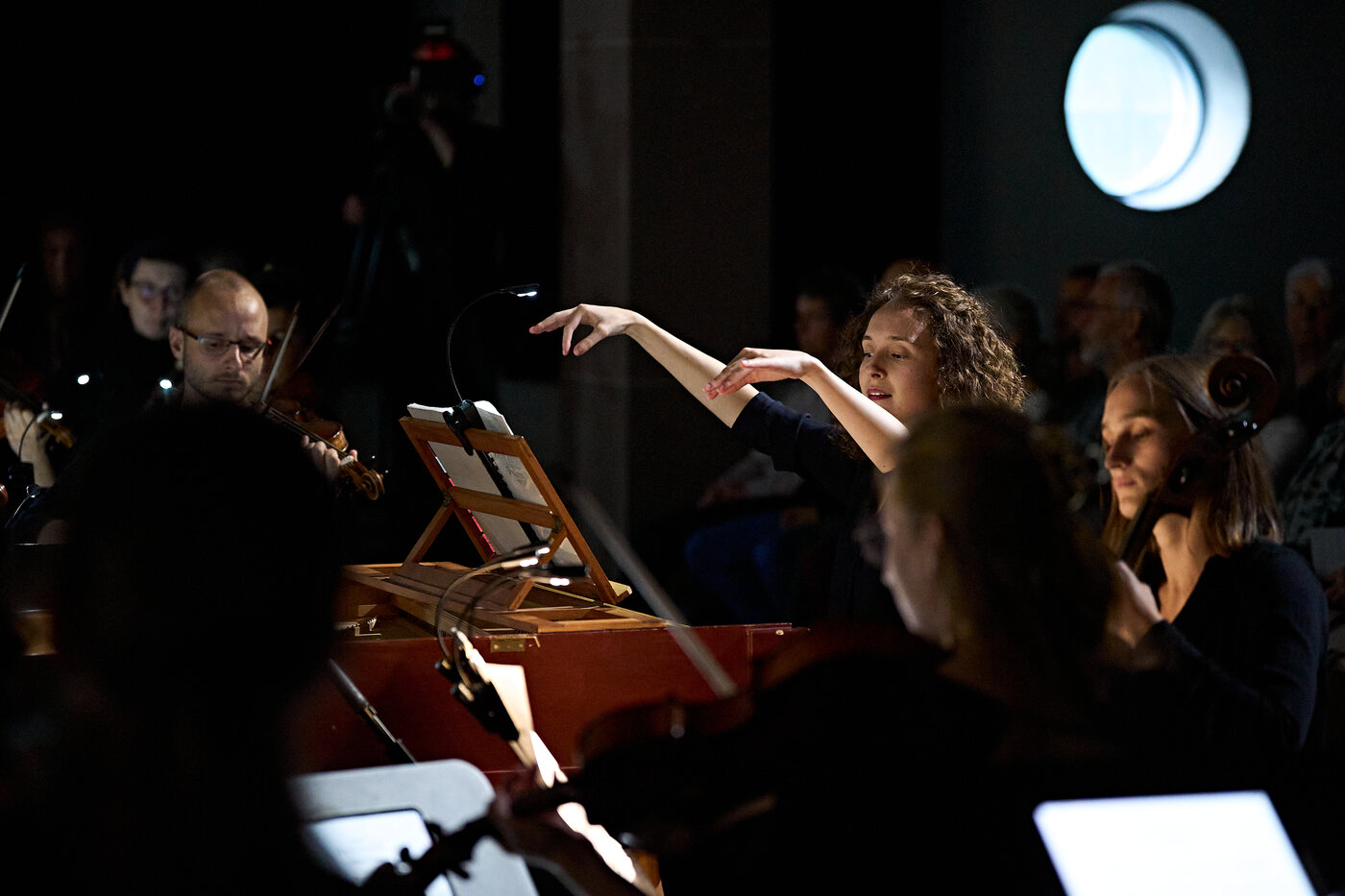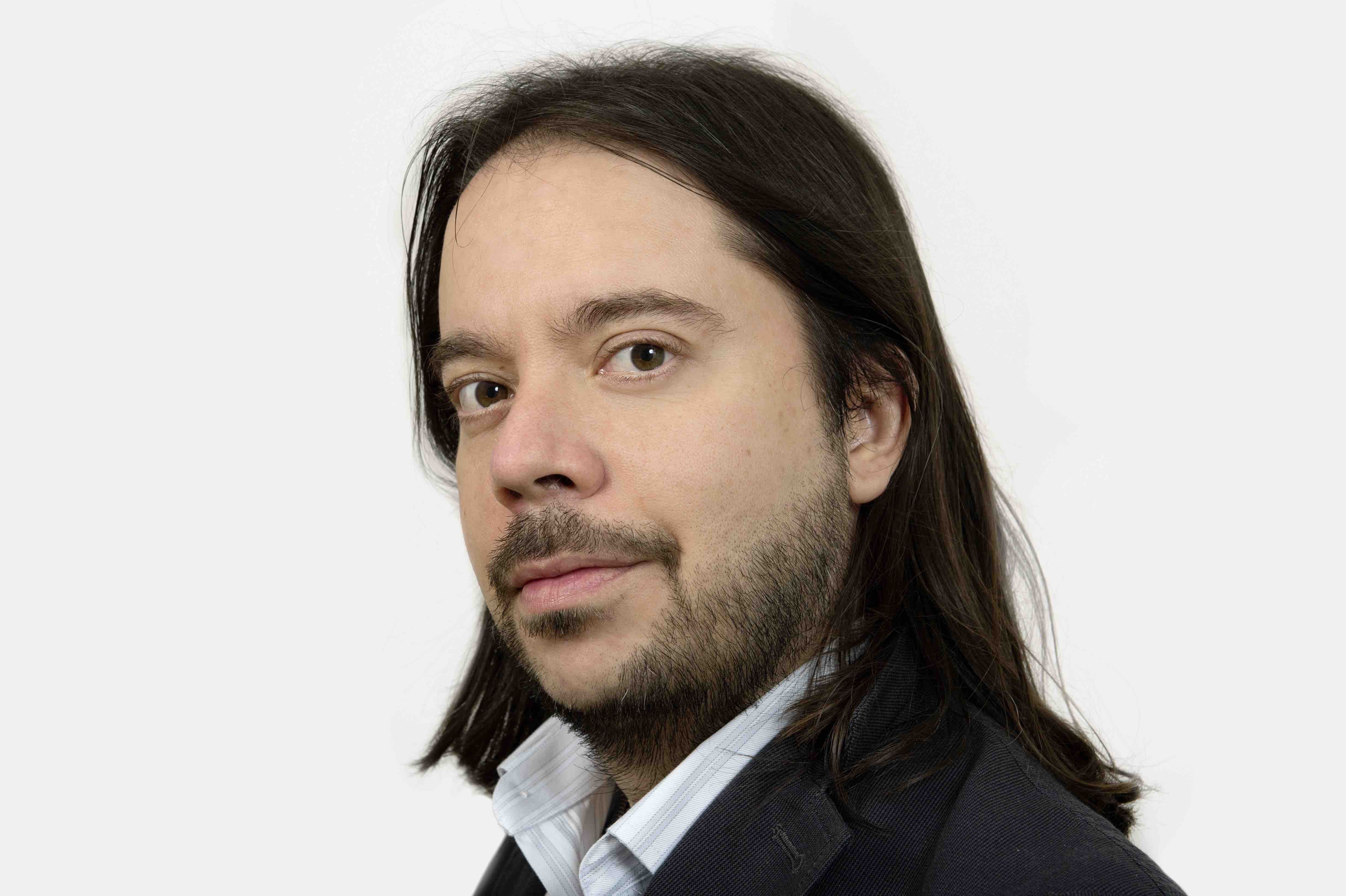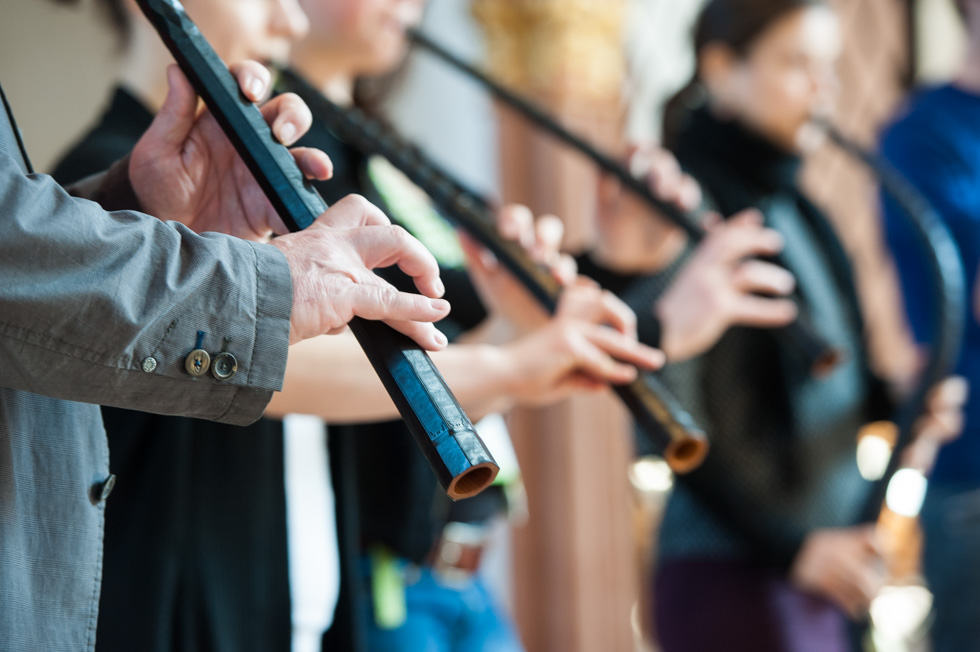MA Specialized Music Performance | Early Music Thoroughbass
Hochschule für Musik Basel
This programme is aimed at qualified keyboard players, preferably harpsichordists, with a strong foundation in thoroughbass and the best instrumental, theoretical and creative skills in baroque music. The programme uses the special skills of the Schola Cantorum Basiliensis to further develop the acquired skills. The thoroughbass training is combined with ensemble work and conducting. A broad understanding of stylistic and aesthetic aspects as well as an in-depth examination of historical sources and theory round off the profile.
.jpg)
- Deepening knowledge of historical music theory, the thoroughbass and historical sources, and communicating this knowledge in a reflective, creative and artistically convincing manner
- Performing thoroughbass tasks in all historical styles, creatively and artistically convincingly with the highest level of competence
- Enabling large and small ensembles to perform a work as a thoroughbass player and as a conductor
Steckbrief
Zukunftsaussichten
A study programme for very gifted harpsichordists
This programme is aimed primarily for gifted keyboard players (especially harpsichordists) who have an excellent basis in thoroughbass as well as the technical ability, theoretical knowledge and creative flair necessary to deal with this subject in a comprehensive way. The programme makes use of the unique competences and resources of the Schola Cantorum Basiliensis (SCB). In addition to instruction in the Thoroughbass Major, there is a smaller unit of practical instrumental tuition to hone the students’ technical proficiency.

Learning outcomes
Keeping engagement with Early Music and its myriad performance practices alive, raising public awareness of this specialist field and providing input to the dialogue between different forms of art and music thanks to:
- Expert musicianship and a qualification in ensemble/orchestra direction by means of thoroughbass accompaniment;
- Wide-ranging knowledge of historical performance practices and the ability to communicate this information clearly and effectively;
- A high degree of self-reflection, coupled with excellent social and leadership skills; familiarity with musicology studies as regards the development of creative and innovative programmes and concepts in the field of Early Music, including the preparation of high-quality music scores.
Career prospects
Graduates of this Master’s degree programme are qualified to pursue a career as a continuo player, coach and ensemble director, and to deliver stylistically diverse, artistically compelling and high-calibre performances in both concert and music mediating settings.
Target audience
This programme is aimed primarily for gifted keyboard players (especially harpsichordists) who have an excellent basis in thoroughbass as well as the technical ability, theoretical knowledge and creative flair necessary to deal with this subject in a comprehensive way.
Conducting an ensemble with basso continuo?
Excerpt of a Recital
Schola Cantorum Basiliensis - Generalbass from Schola Cantorum Basiliensis on Vimeo.
Aufbau und Inhalte
The study programme makes use of the unique competences and resources of the Schola Cantorum Basiliensis, built up over the last decades and responsible for the reputation this seat of higher learning has gained as a centre for a historically informed and highly differentiated approach to playing thoroughbass. In addition to instruction in the Thoroughbass Major, there is a smaller unit of practical instrumental tuition to hone the students’ technical proficiency. An essential addition to the training in thoroughbass is the ensemble direction, since the two fields are closely interconnected.
Peforming with an ensemble
An essential combination to the training in thoroughbass is the ensemble direction, as the two fields are closely intertwined.
Students should be able to play thoroughbass according to the given regional traditions and chronological developments. They learn to use thoroughbass to direct vocal and instrumental ensembles of all sizes, from small musical formations to orchestras and large vocal ensembles, and acquire the necessary tools and confidence to put together innovative programmes of their own design. Graduates of this Master’s Degree course are capable of dealing competently with all types of tasks requiring a knowledge of thoroughbass.
Students will also perfect their musicianship, and will be expected to work regularly with their own ensembles during their studies.
Modules and regulations
The BA and MA degree programs at the Basel Academy of Music are based on modules.
The legally binding structure provides an initial guide to the content and weighting of the subjects on the degree program.
The detailed content and modalities of the individual subjects can be found in the module descriptions.
The study regulations come into force together with the study and examination regulations of the Basel Academy of Music FHNW and form the legal framework.
Vertiefungen
International
Leitung und Dozierende

Mitglied der Leitung, Studiengangsleiter Master in Musikalischer Performance, Spezialisierter Master in Improvisation und Generalbass, MAS AVES, Stipendienwesen

Dozierende der Schola Cantorum Basiliensis
Unsere international renommierten Dozierenden auf einen Blick
Voraussetzungen, Zulassung, Eignungsabklärung
Language skills
We expect students to have good German language skills at the beginning of the studies. Students who are not German native speakers must present at least a B1 German language certificate (according to the Common European Framework of Reference for Languages (CEFR)) at the beginning of the studies.
